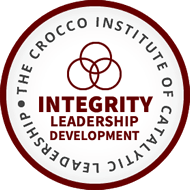A crisis has been defined as a time of intense difficulty, trouble or danger. It would not be an exaggeration to conclude that our country, and many businesses, are experiencing a series of volcanic crises that are negatively impacting our lives physically, economically and racially. History has taught us that times of crises have often led to major turning points and changes. At times, those changes have been extremely positive, and at other times, those changes have been extremely negative. The quality of leadership that leaders bring to this country and their businesses will determine whether the outcomes of these crises will be positive or negative. There is a common denominator to fixing our polarized and broken democracy and the innumerable challenges that corporate America is facing at this time. That common denominator is leaders who know how to listen.
The strong and intense emotions that surface in times of crisis often reduce and limit our capacity to listen. One of the major criticisms of many leaders is that they don’t listen to their people. In times of crisis, complexity and uncertainty, outstanding leaders have always prioritized their need to make accurate assessments of a situation through the discipline of active, focused, and vigilant listening. As I have been observing the lack of leadership that is being evidenced in our country and in many businesses, I have been asking myself the question, “Is anyone listening”? The most critical communication skill that any leader or human being could ever possess is the ability to listen to others. There is so much anxiety, confusion, division, and fear that is permeating our society because so many people and groups are driving their own agendas without taking the time to listen to others. Does anyone seem to be listening to anyone else at the present time? I hear an unprecedented amount of yelling and screaming, but I am not observing many people who appear to be listening to others. Isn’t it interesting how human beings tend to raise their voices with one another when they don’t feel like they are being heard?
What steps do we need to take to overcome the significant challenges that we are facing? I would expect that many people would have a variety of strong opinions about how they would answer that question. I would propose that the first step each of us and our leaders need to take, is to sit down together to listen to one another. There is a timeless biblical principle that teaches us that we should be “quick to listen, and slow to become angry”. This is a description of someone who listens to others with a spirit of eagerness, readiness and expectancy. This is the type of listening that gives human beings the ability to understand one another which is the goal of all communication. This principle also encourages us to be slow to become angry. Sadly, we are presently observing far too many people who are “too quick to become angry and too slow to listen”. Until we are able to reverse this reality, we will not be in a position to fix what is broken.
If you are presently in a position of leadership, I want to challenge you to make listening your highest priority. Practicing the discipline of listening will tear down emotional walls and will build relational bridges. Leaders who listen earn, and build, the trust and respect of their people. Leaders who listen connect emotionally and empathically with others, while validating the worth and value of people. Is anyone listening? If you are a leader, I hope you have answered with a resounding yes! We need more leaders who will lead with their hearts and their ears.

